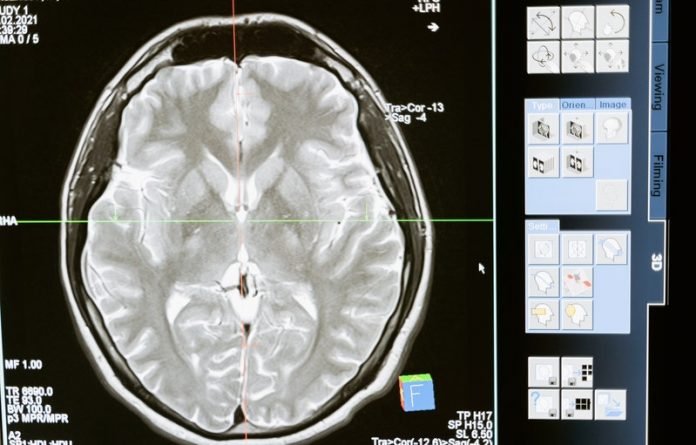
Scientists from Rutgers University found more clear-cut evidence of how the destructive proteins linked to Alzheimer’s disease attack human brain cells and destroy surrounding tissue.
They identified an important mechanism that could help develop a new treatment for a disease that afflicts millions and has no known cure.
The research is published in the journal Cell Stem Cell and was conducted by Peng Jiang et al.
In the study, the team examined human brain immune cells injected into the brains of specially bred immunodeficient mice, creating what they called a human-mouse chimera.
They detailed what happened to specialized immune brain cells known as microglia after those cells were exposed to tau proteins—destructive substances believed to be involved in Alzheimer’s and other severe human brain diseases.
The scientists were able to witness and analyze—through samples extracted at different stages—a cellular brain attack that has been largely elusive up to this point.
In autopsies, scientists have been able to study the brains of people who died from Alzheimer’s and have seen residues of tau proteins, cellular changes, and some other possible causative factors.
The mice in the study were specially bred to be immunodeficient so that they could receive implanted human cells without rejecting them due to normal immune defenses.
The immunodeficient mice were injected with human microglial cells and, later, with tau proteins, which are linked to the development of brain disease.
The team says since microglial cells are one of the first cell responders when something goes wrong in the brain, they believe the changes we saw to be significant.
Genetic analysis also showed genes involved in interferon signaling turning on during the attack, indicating an important area to target for future therapies.
If you care about Alzheimer’s, please read studies about the cause of Alzheimer’s disease, and common cancer drug that may help reverse Alzheimer’s symptoms.
For more information about brain health, please see recent studies about how to sleep to prevent Alzheimer’s disease, and results showing antioxidants may help prevent Alzheimer’s disease.
Copyright © 2022 Knowridge Science Report. All rights reserved.



